It may seem farfetched for cats to try and eat some of the following foods. Over the years however, we have seen it all, cats eating anything and everything from cantaloupe to lettuce and olives. Some cats will beg endlessly for scraps of your food, but its best to avoid people food as treats. Keep the following foods out of your kitty cat’s reach.
1)Alcohol
Often alcoholic drinks may include milk or another mix of flavors that 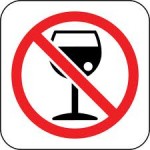 may be tempting to your kitty. Be careful where you leave your drink as alcohol can cause vomiting, diarrhea, decreased coordination, central nervous system depression, difficulty breathing, tremors, abnormal blood acidity, coma and even death.
may be tempting to your kitty. Be careful where you leave your drink as alcohol can cause vomiting, diarrhea, decreased coordination, central nervous system depression, difficulty breathing, tremors, abnormal blood acidity, coma and even death.
2)Avocado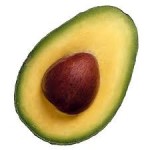
The leaves, fruit, seeds and bark of avocados contain Persin. This can cause vomiting and diarrhea in your cat.
3)Chocolate, Coffee, Caffeine and Soda
These products all contain substances called methylxanthines, which are 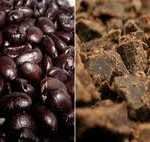 found in cacao seeds, coffee beans and in a nut extract used in some sodas. The primary methylxanthine in chocolate is Theobromine. Methylxanthines can cause vomiting and diarrhea, panting, excessive thirst and urination, hyperactivity, abnormal heart rhythm, tremors, seizures and even death. Dark chocolate is more dangerous than milk and white chocolate.
found in cacao seeds, coffee beans and in a nut extract used in some sodas. The primary methylxanthine in chocolate is Theobromine. Methylxanthines can cause vomiting and diarrhea, panting, excessive thirst and urination, hyperactivity, abnormal heart rhythm, tremors, seizures and even death. Dark chocolate is more dangerous than milk and white chocolate.
4)Dog Food
An occasional bite of dog food won’t hurt your cat. A steady diet of dog food 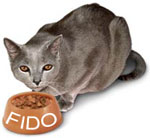 can cause your cat to be severely malnourished. Cat food is specially formulated for a cat’s needs, which include more protein as well as certain vitamins and fatty acids.
can cause your cat to be severely malnourished. Cat food is specially formulated for a cat’s needs, which include more protein as well as certain vitamins and fatty acids.
5)Grapes & Raisins
The toxic substance within grapes and raisins is unknown. Ingestion of grapes or  raisins by your cat can result in kidney failure. The effects may be more pronounced in elderly and sick animals.
raisins by your cat can result in kidney failure. The effects may be more pronounced in elderly and sick animals.
6)Green Tomatoes, Green (raw Potatoes)
These foods are members of the Solanaceae family of plants, and contain a  bitter, poisonous alkaloid called Glycoalkaloid Solanine, which can cause vomiting and diarrhea. The leaves and stems are particularly toxic. (Tomatoes in cat foods are ripe, and should cause no concern because they appear in relatively small amounts).
bitter, poisonous alkaloid called Glycoalkaloid Solanine, which can cause vomiting and diarrhea. The leaves and stems are particularly toxic. (Tomatoes in cat foods are ripe, and should cause no concern because they appear in relatively small amounts).
7)Human Medicine
No this one is not a “food” but ingesting a drug prescribed for humans is one 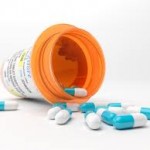 of the most common causes of poisoning in cats so it deserves to make the list. Keep all medicines where your cat can’t get to them. Never give your cat any over-the-counter medicine unless advised to do so by your vet. Ingredients such as acetaminophen or ibuprofen which are common in pain relievers and cold medicine can be deadly to your cat.
of the most common causes of poisoning in cats so it deserves to make the list. Keep all medicines where your cat can’t get to them. Never give your cat any over-the-counter medicine unless advised to do so by your vet. Ingredients such as acetaminophen or ibuprofen which are common in pain relievers and cold medicine can be deadly to your cat.
8)Liver
Eating too much liver can cause vitamin A toxicity. This is a serious 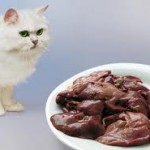 condition that can affect your cat’s bones. Symptoms include deformed bones, bone growths on the elbows and spine, and osteoporosis. Vitamin A toxicity can also cause death.
condition that can affect your cat’s bones. Symptoms include deformed bones, bone growths on the elbows and spine, and osteoporosis. Vitamin A toxicity can also cause death.
9)Macadamia Nuts
Macadamia nuts are commonly used in many cookies and candies. However,  they can cause problems for your feline companion. Lethargy, vomiting, and hyperthermia are initial symptoms with progression to ataxia or hind-limb paresis. Also seen are tremors, abdominal pain, lameness, joint stiffness, and pale mucous membranes. Signs usually appear within 3-12 hours of ingestion and last approximately 24-48 hours.
they can cause problems for your feline companion. Lethargy, vomiting, and hyperthermia are initial symptoms with progression to ataxia or hind-limb paresis. Also seen are tremors, abdominal pain, lameness, joint stiffness, and pale mucous membranes. Signs usually appear within 3-12 hours of ingestion and last approximately 24-48 hours.
10)Milk
Believe it or not cats are lactose-intolerant! Cats do not possess 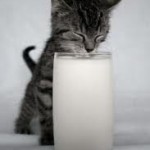 significant amounts of lactase (the enzyme that breaks down lactose in milk), milk and other milk-based products cause them diarrhea or other digestive upset.
significant amounts of lactase (the enzyme that breaks down lactose in milk), milk and other milk-based products cause them diarrhea or other digestive upset.
11)Onions, Garlic, Chives
These vegetables and herbs can cause gastrointestinal irritation causing  vomiting and diarrhea. They can also lead to red blood cell damage. An occasional low dose, such as what might be found in pet foods or treats, likely will not cause a problem, but we recommend that you do NOT give your cat large quantities of these foods.
vomiting and diarrhea. They can also lead to red blood cell damage. An occasional low dose, such as what might be found in pet foods or treats, likely will not cause a problem, but we recommend that you do NOT give your cat large quantities of these foods.
12)Raw/Undercooked Meat, Eggs and Bones
Raw meat and raw eggs can contain bacteria such as Salmonella and E. coli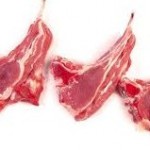 that can be harmful to cats. In addition, raw eggs contain an enzyme called avidin that decreases the absorption of biotin (a B vitamin), which can lead to skin and coat problems. Feeding your pet raw bones may seem like a natural and healthy option that might occur if your pet lived in the wild. However, this can be very dangerous for a domestic cat, who might choke on bones, or sustain a grave injury should the bone splinter and become lodged in or puncture your cat’s digestive tract.
that can be harmful to cats. In addition, raw eggs contain an enzyme called avidin that decreases the absorption of biotin (a B vitamin), which can lead to skin and coat problems. Feeding your pet raw bones may seem like a natural and healthy option that might occur if your pet lived in the wild. However, this can be very dangerous for a domestic cat, who might choke on bones, or sustain a grave injury should the bone splinter and become lodged in or puncture your cat’s digestive tract.
13)Salt
Large amounts of salt can produce excessive thirst and urination, or even  sodium poisoning in cats. Signs that your cat may have eaten too many salty foods include vomiting, diarrhea, depression, tremors, elevated body temperature, seizures and even death.
sodium poisoning in cats. Signs that your cat may have eaten too many salty foods include vomiting, diarrhea, depression, tremors, elevated body temperature, seizures and even death.
14)Xylitol
Xylitol is used as a sweetener in many products, including gum, candy, baked 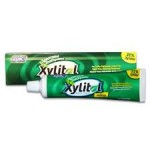 goods and toothpaste. It can cause insulin release in most species, which can lead to liver failure. The increase in insulin leads to hypoglycemia (lowered sugar levels). Symptoms include vomiting, lethargy and loss of coordination, progressing to seizure activity. Elevated liver enzymes and liver failure can be seen within a few days.
goods and toothpaste. It can cause insulin release in most species, which can lead to liver failure. The increase in insulin leads to hypoglycemia (lowered sugar levels). Symptoms include vomiting, lethargy and loss of coordination, progressing to seizure activity. Elevated liver enzymes and liver failure can be seen within a few days.
15)Yeast Dough
Yeast dough can rise and cause gas to accumulate in your pet’s digestive  system. This can be painful and even cause the stomach or intestines to rupture. So uncooked dough is a big no-no.
system. This can be painful and even cause the stomach or intestines to rupture. So uncooked dough is a big no-no.
If you would like to schedule an appointment for your cat click here : http://northernilcatcliniccom.web.siteprotect.net/schedule-appointment/